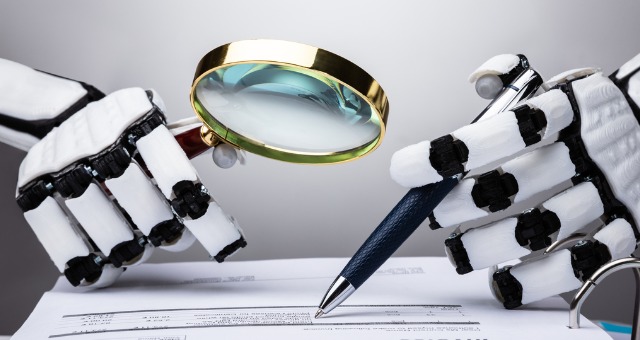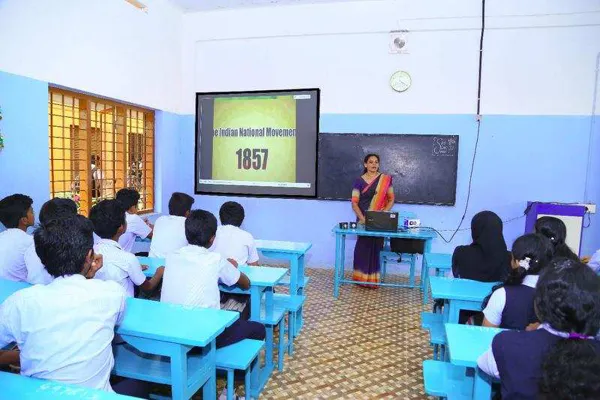The Role of AI in Preventing Academic Cheating and Plagiarism

In the digital age, academic cheating and plagiarism have become significant challenges for educational institutions. The availability of online resources and tools has made it easier for students to misuse information. However, Artificial Intelligence (AI) is emerging as a powerful ally in promoting academic integrity by detecting plagiarism, monitoring exams, and analyzing student submissions.
AI-Powered Plagiarism Detection Tools
Plagiarism remains one of the most prevalent forms of academic dishonesty. To combat this, AI-driven tools analyze student work against massive databases of online and offline content. These tools go beyond basic word matching; they understand content structure, paraphrasing, and even intent.
Examples include:
- Turnitin: An advanced AI plagiarism checker that compares assignments against billions of web pages, research papers, and academic sources.
- Grammarly Plagiarism Checker: Uses machine learning to identify copied content while improving writing skills.
- Copyscape: Effective in identifying exact matches and paraphrased content across online platforms.
These tools ensure that educators can pinpoint the originality of submissions and deter students from copying content.
AI in Exam Proctoring and Monitoring
Remote learning has increased the need for secure virtual exam environments. AI-driven proctoring systems monitor students during tests to prevent cheating. Using facial recognition, gaze tracking, and behavioral analytics, AI can flag suspicious activities such as looking away from the screen, unauthorized materials, or multiple individuals in the room.
Some popular AI proctoring tools include:
- ProctorU: Combines AI and live monitoring to ensure exam integrity.
- Respondus Monitor: Analyzes student behavior and flags potential cheating attempts.
- ExamSoft: Uses AI to maintain fairness in assessments by detecting irregularities.
These technologies help institutions conduct fair and reliable examinations, ensuring that all students are assessed on equal terms.
Detecting AI-Generated Content
The rise of AI tools like ChatGPT has led to concerns about students submitting AI-generated work as their own. To counter this, AI systems are being developed to detect content written by machines. Tools like GPTZero and Originality.AI analyze sentence complexity, patterns, and structure to distinguish human-written text from AI-generated content.
By staying one step ahead, AI safeguards originality and upholds academic honesty.
Behavioral Analytics to Spot Irregularities
AI is also capable of analyzing a student’s past writing style, performance trends, and behavior. If a sudden deviation is detected, such as an unusually advanced essay, educators can investigate further. Machine learning algorithms track metrics like writing tone, vocabulary, and consistency to identify possible cases of outsourcing or academic dishonesty.
Enhancing Awareness Through AI
Rather than just policing students, AI also plays a role in educating them about plagiarism. Tools embedded with AI not only detect copied content but also offer suggestions on how to properly paraphrase, cite sources, and improve writing quality. This proactive approach helps foster a culture of academic integrity.
For instance, platforms like Scribbr and Quetext provide feedback to guide students toward creating original work.
Challenges in Implementing AI for Academic Integrity
While AI offers significant advantages, challenges remain:
- Privacy Concerns: Students often express concerns about data collection and surveillance during AI-proctored exams.
- False Positives: AI tools may occasionally flag original work as plagiarized, creating a need for manual review.
- Dependence on Technology: Over-reliance on AI tools could lead to a lack of trust between educators and students.
To address these challenges, institutions must balance AI implementation with transparency, fairness, and ethical practices.
The Future of AI in Academic Integrity
As AI continues to evolve, its role in combating academic cheating will only expand. Innovations such as blockchain integration for secure record-keeping, AI-authenticated submissions, and improved machine learning algorithms will further strengthen academic integrity. Additionally, AI will enable educators to spend less time policing dishonesty and more time mentoring students.
Conclusion
Artificial Intelligence is revolutionizing the way academic institutions tackle cheating and plagiarism. From advanced plagiarism detection to AI-powered proctoring systems, technology is empowering educators to maintain academic honesty in an increasingly digital world. By educating students on ethical learning and leveraging AI tools, institutions can foster a culture of integrity that prepares learners for success in both academics and life.










